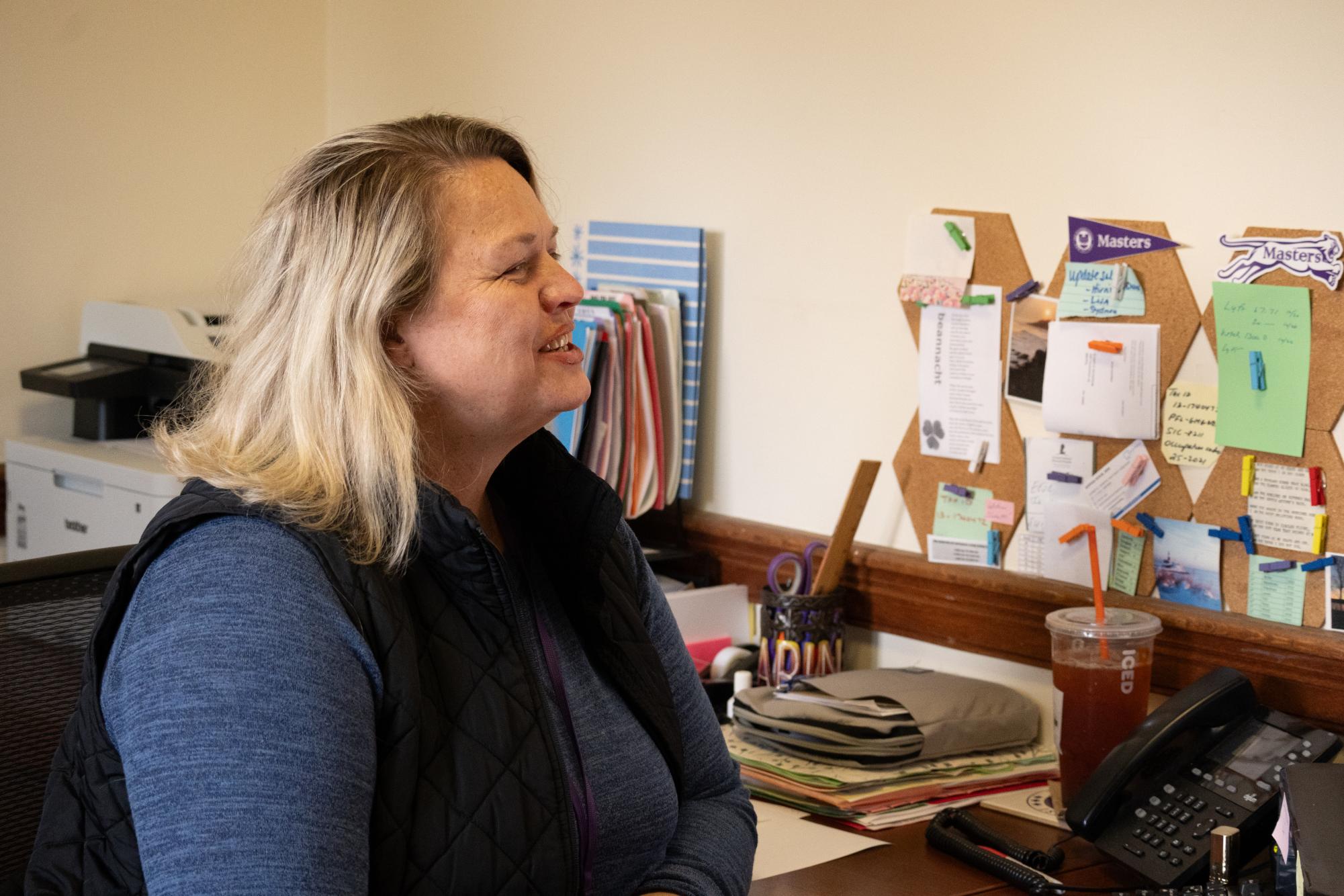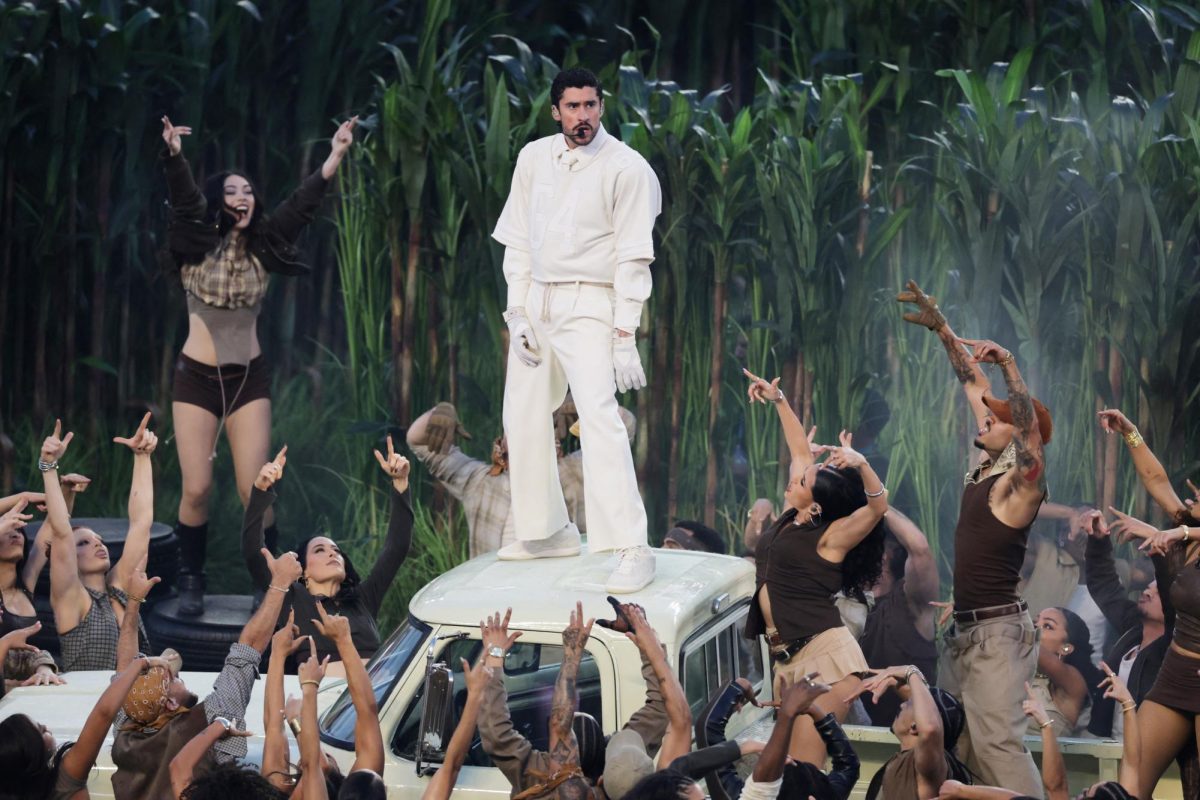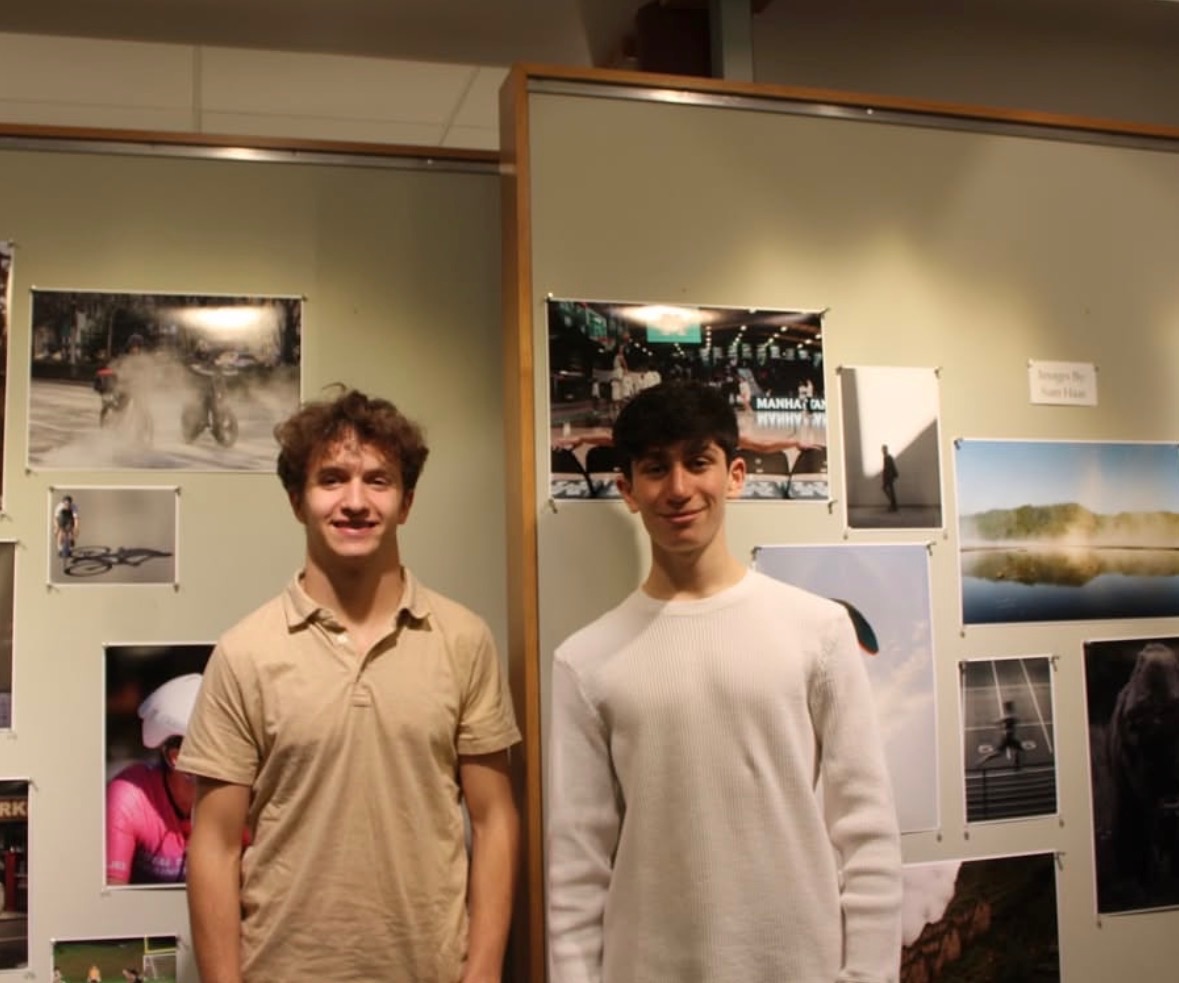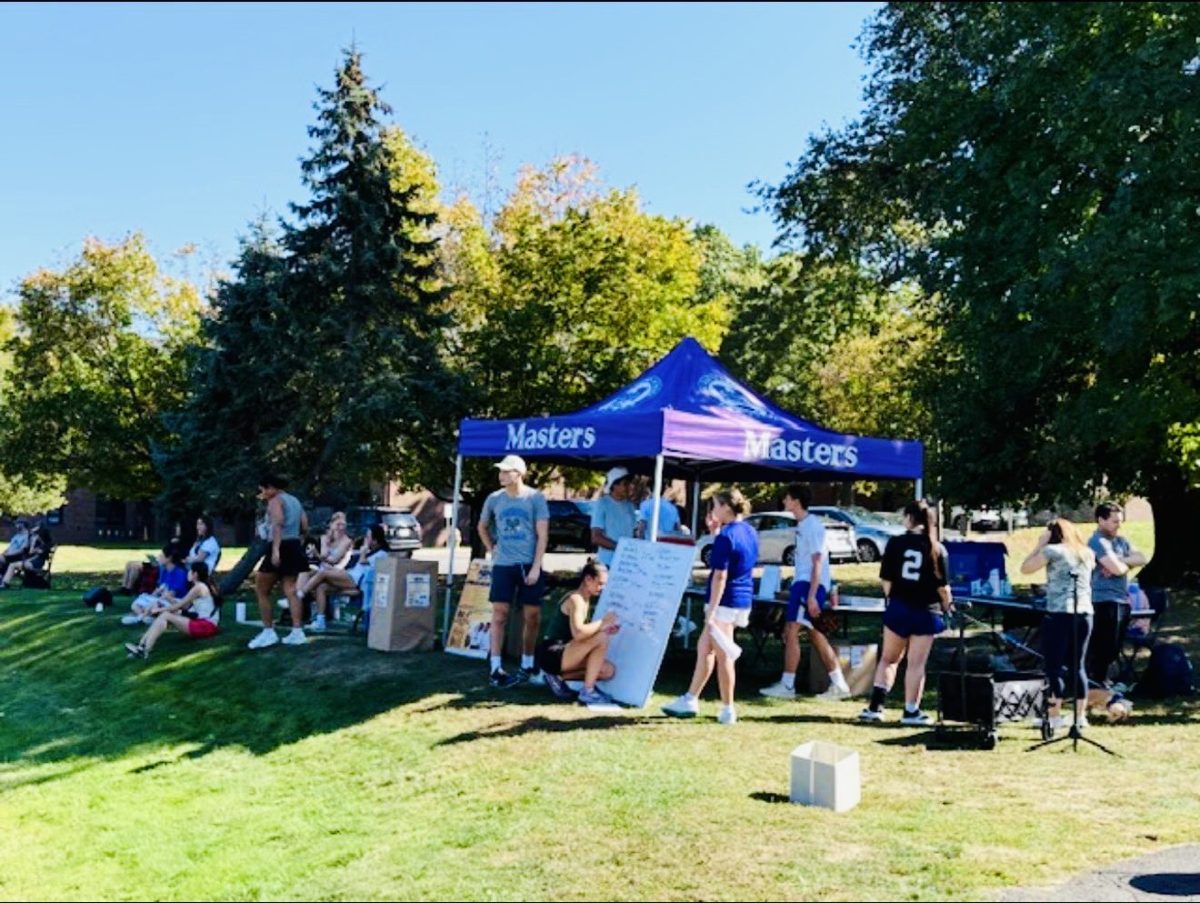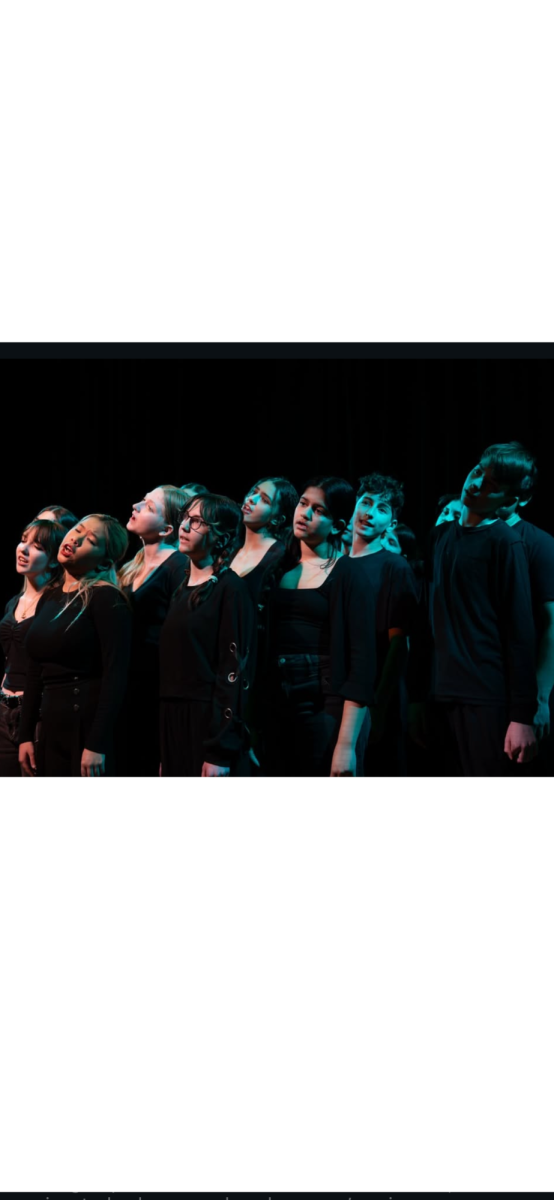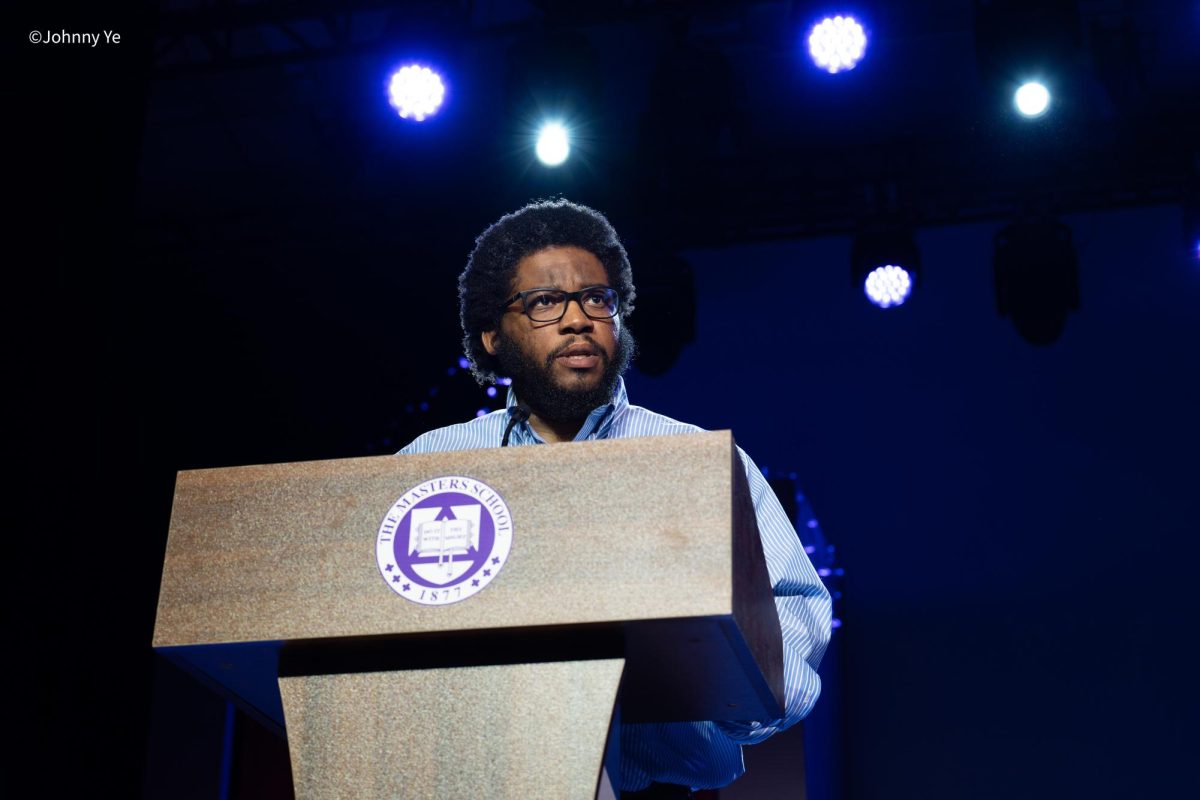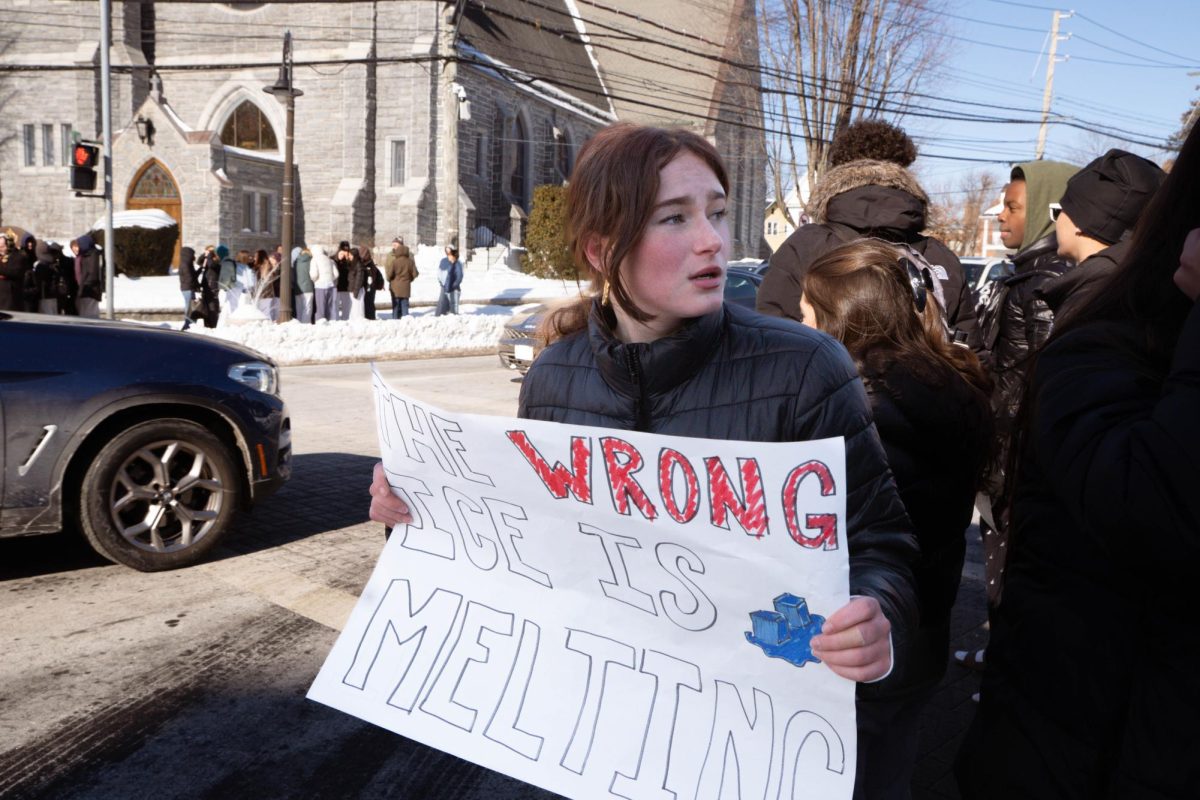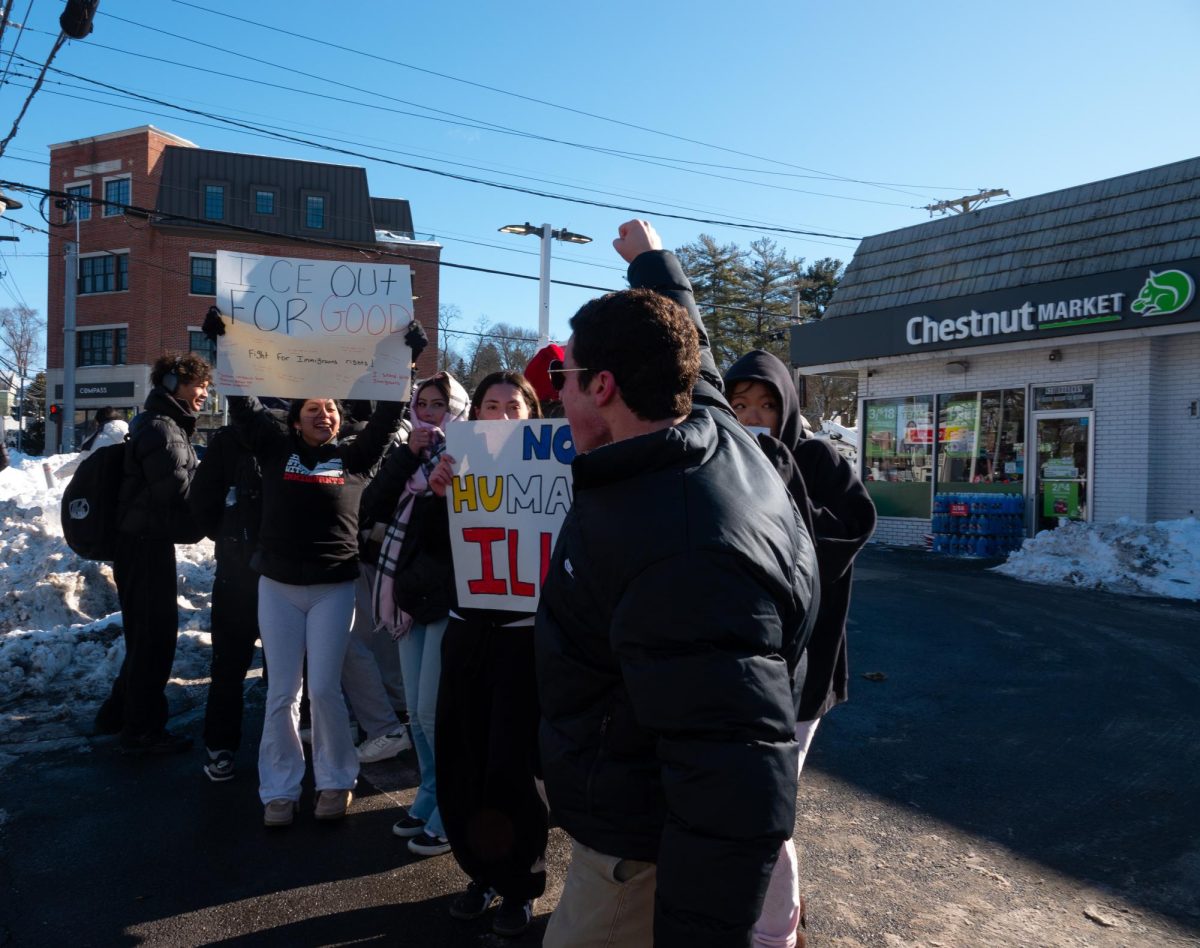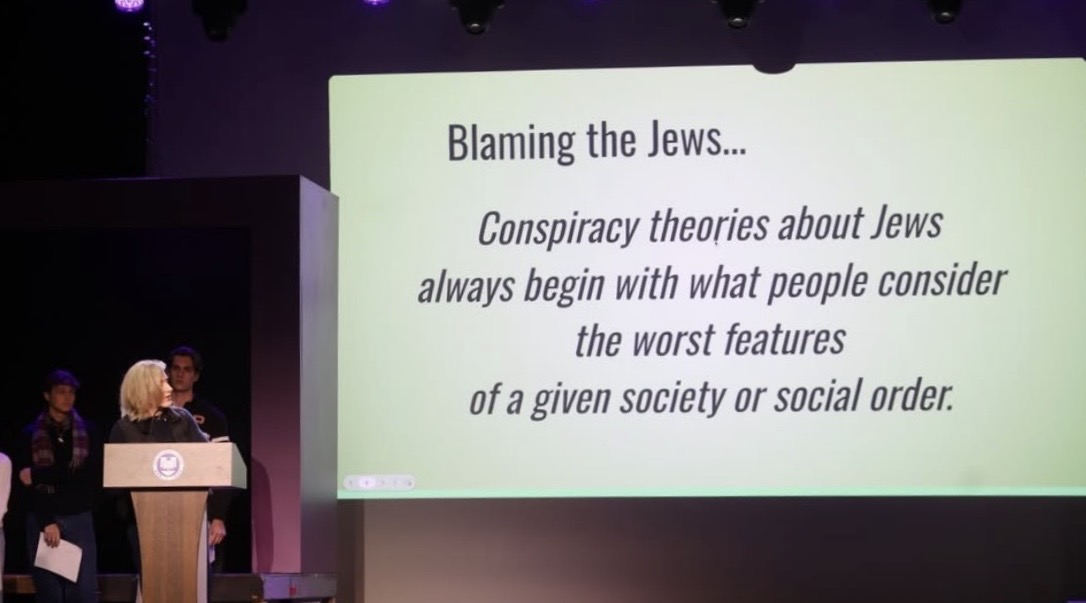Sliding open the front door and stepping into the foyer, past the entry table with the conventional black rotary phone, a young Karin O’Connor would have arrived back from a long day at school. After setting down her bag, she might consider making a call, but then find herself sitting in her family room and clicking on the TV instead.
From the tragic Challenger shuttle’s explosion, to the clashing of New Wave music, or even the colorful splashes from MTV, pop culture streamed into her life through the pixelated TV screen.
Seated on the couch, she might even have been watching a new music video like “Bad” by Michael Jackson. Little did she know that later in her life she would come to be the Chief of Staff and assistant to the head, Laura Danforth, of the very school where the beginning of the Jackson music video was set.
Some years later, in the head office at The Masters School, and in the midst of a novel phone ban, O’Connor sat in a swivel chair – desk, computer, and student journalist in front of her.
She reminisced about her teen years and her relationship with technology.
O’Connor’s parents did not keep an eye on Life 360 or text her to see if she was okay because they couldn’t. Instead, they just trusted her. Her mother said goodbye, and O’Connor went off and did whatever she had to do. Her mother didn’t know where O’Connor was and didn’t have an app to track her. She had no way to get in touch with her. Overall, there was faith that O’Connor was capable. O’Connor believes that she lived in a world where young adults were less confined and were trusted to use their best judgment.
O’Connor also pointed out that making a call was hit or miss. If the call went unanswered, she explained, “You just hung up the phone and moved on with your life.” She further noted the absence of voicemail and how these factors in combination allowed for an era she misses – an era of “the freedom of not having people at the ready”.




